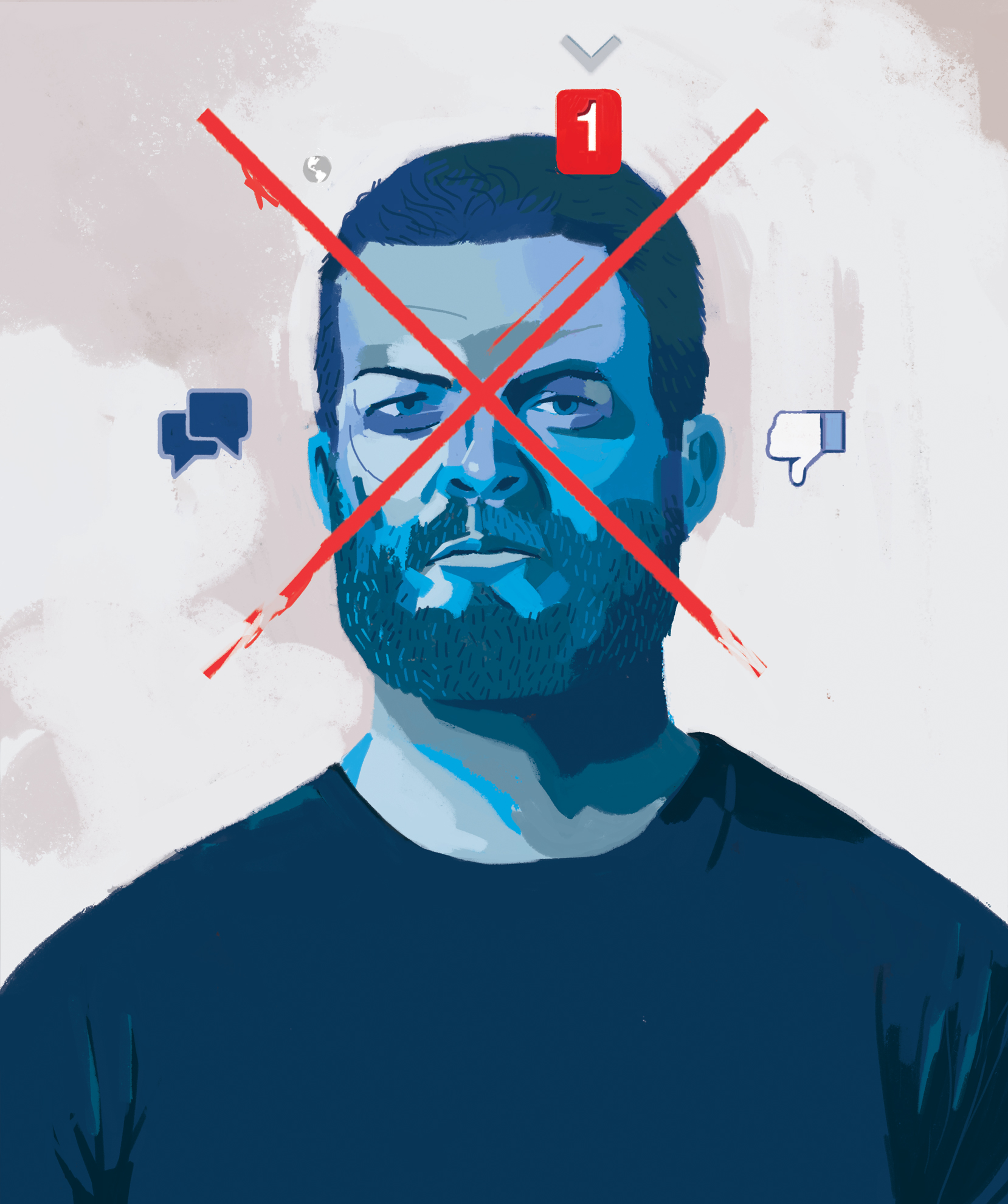Murray excused himself for the washroom and made his way back to the courtyard by the conference room. Forbes‘s 21st-richest person was still there, his back turned toward a man who considers him his hero. Like Zuckerberg, Murray also started a tech company in university. It didn’t make a billion dollars, but the $5,000 cheque he got when he sold it sure felt like a lot at 19.
From there he co-created the Canadian Brewhouse chain, then sold his shares to “work a soul-crushing job crunching data all day long.” When his new business partners approached him to invest in an upscale sports lounge, he felt as if he’d been invited to the Playboy Mansion. They were so cocky that, beneath the name on the blueberry coloured exterior, they mounted “Est. 2004.”
And what a year it was: A young man in the Alberta Capital was living the dream, another at Harvard was about to change the world, and all the young men of the National Hockey League were miffed. The NHL lockout was like a puck to the mouth, but Murray kept on a toothless grin. “I was the undefeatable optimist,” he says. But not even $5 steak sandwiches could save Blue Chicago from closing before its second birthday.
The following season the Oilers went to game seven of the Stanley Cup Finals and every local bar was minting money. Murray vowed one day he’d profit off the Oilers.
The next year, he sat in an austere office with Adam Rozenhart, his childhood friend and an early social media expert, refreshing articles they’d just published on their new community blog, OilersNation, and hoping someone would comment. Today, a typical OilersNation article gets 100 comments, is written by high-profile sports journalists like Jason Gregor and Robin Brownlee, and is part of a national network of hockey sites, with offices in three cities, that together get 40 million annual visitors.
In 2009 after Murray started what’s now the Nation Network, he became a partner in pan-Asian fast-food restaurant Oodle Noodle, helping grow it to seven locations. He also launched an e-ticket company and got a $50,000 investment on an early iteration of Dub5, before the recession halted further funds. “I was trying to get my PhD in entrepreneurship,” he says. He and partners also tried to buy the company in the office next door, Nexopia. Once one of the most popular social media networks, it had 1.5 million users before Facebook even existed.
